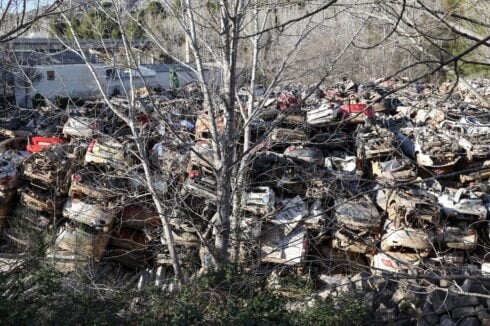AS we enter 2025, the Spain property market is gearing up for transformative changes, shaped by evolving buyer preferences, economic trends, and technological advancements.
From sustainable housing to digital transactions, here’s a look at the key trends expected to define the Spanish real estate landscape in the coming year.
Sustainability Takes Centre Stage
The demand for eco-friendly homes is set to grow as buyers prioritise energy efficiency and sustainable living. New government policies and EU regulations are driving developers to incorporate green technologies like solar panels, energy-efficient insulation, and water-saving systems into new constructions. Additionally, retrofitting older buildings to meet environmental standards is expected to gain momentum.

Why It Matters: With Spain’s commitment to the European Green Deal and increasing awareness of climate change, properties with high energy ratings are becoming more attractive to both domestic and international buyers.
Rise of Smart Homes
The integration of smart technology in residential and commercial properties is no longer a luxury but a necessity. Features like remote-controlled lighting, advanced security systems, and energy management tools are becoming standard in new developments. Buyers are looking for homes that offer convenience, security, and efficiency.
Key Insight: Developers who invest in cutting-edge smart home solutions will have a competitive edge in attracting tech-savvy buyers.
Increased Demand for Second Homes
Spain remains a top destination for international buyers seeking second homes, particularly in regions like Costa del Sol, Alicante, and the Balearic Islands. The weak euro and favorable property price trends make Spain an attractive option for investors from countries like the United States, Germany, and the UK.

Emerging Trend: Remote work continues to drive interest in properties that offer a balance between luxury and practicality, with proximity to the beach, golf courses, and cultural attractions being major selling points.
The Urban Exodus Slows Down
While the pandemic saw a shift towards rural and suburban living, 2025 may witness a resurgence in urban housing demand in Spain. Cities like Madrid, Barcelona, and Valencia are expected to attract buyers due to their vibrant culture, improved infrastructure, and employment opportunities.
What’s Changing: Urban areas are adapting to post-pandemic realities by creating more green spaces, enhancing public transportation, and promoting mixed-use developments. So, housing market trends are winding more to urban areas.
The Role of Cryptocurrency in Real Estate Transactions
Spain is emerging as a leader in integrating cryptocurrency into real estate. With the EU’s MiCA regulation coming into effect, major Spanish banks are preparing to offer crypto services, which will likely boost the confidence of investors in using digital currencies for property purchases.
Digitalization of the Real Estate Sector
As housing affordability remains a pressing issue, the Spanish government is expected to increase efforts to provide affordable housing solutions. Public-private partnerships and subsidies for first-time buyers are likely to be key strategies in addressing this challenge.
Innovative Example: TEKCE Real Estate’s newly announced digital platform, MyTEKCE, offers buyers and sellers an easy experience. From tracking inquiries to managing property wishlists and viewing histories, MyTEKCE simplifies the entire property transaction process.
“Digitalization is redefining how real estate operates,” said Özkan TEKCE, COO of TEKCE Real Estate. “Platforms like MyTEKCE not only make transactions smoother but also empower our clients with transparency and convenience, enhancing their overall experience.”
Why It’s Important: These innovations are particularly beneficial for foreign investors, enabling them to make informed decisions without traveling to Spain.
Spanish Real Estate Market Will Be Rising Also in 2025
The Spanish real estate market in 2025 is poised for exciting developments, driven by sustainability, technology, and shifting buyer priorities. Whether it’s through smart home innovations, cryptocurrency integration, or sustainable construction, the industry is adapting to meet the needs of a new generation of buyers.
For international and domestic investors alike, Spain’s real estate sector offers a dynamic and promising landscape.








